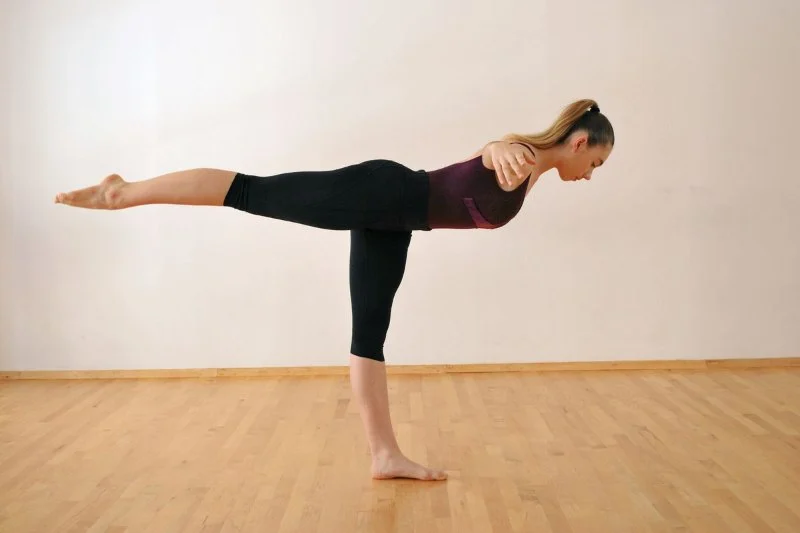
- 1. Understanding Balance in Dance
- 2. Strengthening Core Muscles for Better Balance
- 3. Improving Flexibility to Enhance Stability
- 4. Practicing Balance-Specific Exercises
- 5. Using Props and Techniques to Boost Balance
- 6. How Dance Training Affects Balance Over Time
1. Understanding Balance in Dance
Balance is essential for every dancer, whether performing complex pirouettes, executing an elegant arabesque, or simply holding a graceful pose. In dance, balance refers to the ability to control your body and maintain stability while in motion. A dancer’s ability to stay centered, grounded, and poised is what allows them to perform with confidence and fluidity.
The importance of balance in dance cannot be overstated, as it directly impacts the dancer’s performance, reducing the risk of falls and injuries. For those who want to improve their balance, incorporating specific training exercises and techniques into their routine can make a significant difference in their overall strength and coordination.

Crunch Fitness - Ballantyne / crunch fitness ballantyne
CharlotteMecklenburg CountyNorth Carolina
16045 Johnston Rd A, Charlotte, NC 28277, USA
2. Strengthening Core Muscles for Better Balance
A strong core is the foundation of good balance in dance. Core muscles, which include the abdominals, obliques, and lower back, play a crucial role in maintaining stability and control during movements. A strong core helps dancers stay upright and centered, making it easier to maintain positions and transitions between steps.
To strengthen your core, try exercises like planks, leg raises, and Pilates. These exercises engage the muscles needed for balance and improve posture, which is key to achieving a solid foundation in dance. Creative Edge Dance Studio offers specialized training that focuses on core stability to help dancers improve balance and enhance their overall performance.

Luna Aerial Dance & Performing Arts / luna aerial
FrederickFrederick CountyMaryland
4750 Winchester Blvd #7, Frederick, MD 21703, USA
3. Improving Flexibility to Enhance Stability
Flexibility and balance are closely linked, especially when it comes to performing dynamic dance moves. Dancers who maintain flexible muscles and joints are better able to control their body’s movements, making it easier to achieve stable positions even when executing more challenging steps.
Regular stretching, yoga, and specific flexibility exercises such as splits, forward bends, and shoulder stretches are all beneficial in enhancing balance. By improving flexibility, you increase your range of motion and your ability to stabilize your body in various poses, which is crucial for both beginners and advanced dancers.
4. Practicing Balance-Specific Exercises
Practicing exercises that target balance directly is one of the most effective ways to improve your ability to maintain control during dance. Balance-specific exercises help build muscle memory and coordination, allowing dancers to feel more confident in their abilities.
Simple exercises like standing on one foot, walking in a straight line, or using a balance board can make a huge difference. These exercises challenge your proprioception, which is your body’s ability to sense its position in space. Over time, you’ll notice improved stability and smoother movements during your performances.
5. Using Props and Techniques to Boost Balance
Props such as balance beams, stability balls, and resistance bands can be used during practice to further enhance balance skills. These props provide additional challenges that force dancers to engage different muscle groups and improve stability.
Techniques like focusing on a spot in front of you while turning or using your arms for added balance can also help with overall control. For example, dancers often use the “spotting” technique when performing turns. By focusing on a fixed point, dancers reduce dizziness and maintain better balance throughout their spin.
6. How Dance Training Affects Balance Over Time
Consistent dance training not only improves balance but also enhances proprioception, coordination, and overall body awareness. As dancers continue their practice, they develop the muscle memory needed to stabilize their movements and fine-tune their technique.
Over time, dancers learn how to move with greater efficiency, using less effort to maintain balance and stability. This allows them to perform complex choreography with ease and grace. Whether you're a beginner or an advanced dancer, the more you practice, the stronger and more balanced you’ll become.
At Creative Edge Dance Studio, our instructors focus on helping dancers of all levels build the foundational strength and control needed for optimal performance. Whether you’re looking to improve balance for recreational dance or professional competition, we provide personalized training to help you reach your goals.
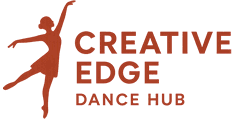
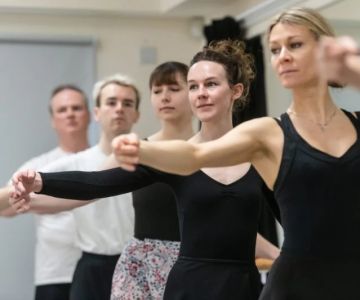

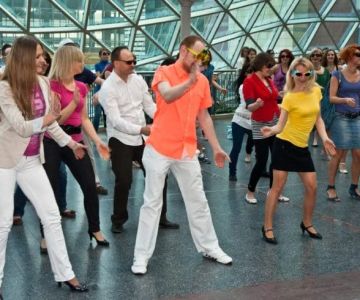

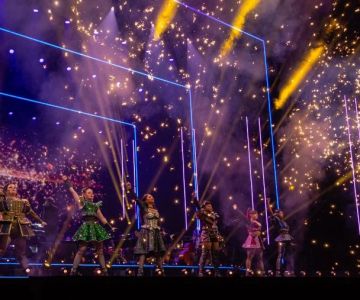
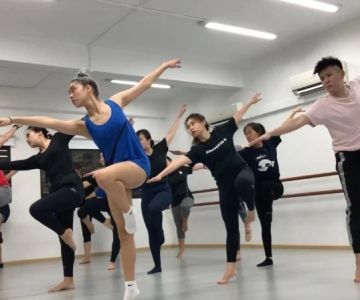
 Carolina Show Company5.0 (4 reviews)
Carolina Show Company5.0 (4 reviews) Karen's Academy of Dance5.0 (3 reviews)
Karen's Academy of Dance5.0 (3 reviews) Gold Ballroom Dance Studio5.0 (55 reviews)
Gold Ballroom Dance Studio5.0 (55 reviews) Amerigo Dance Studio Boston5.0 (12 reviews)
Amerigo Dance Studio Boston5.0 (12 reviews) The Dance Movement4.0 (36 reviews)
The Dance Movement4.0 (36 reviews) At the Barre Dance Academy4.0 (16 reviews)
At the Barre Dance Academy4.0 (16 reviews)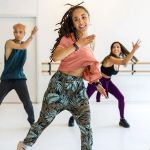 How to Create a Dance Practice Playlist That Motivates You
How to Create a Dance Practice Playlist That Motivates You The Best Ways to Learn Dance Choreography Online for Free
The Best Ways to Learn Dance Choreography Online for Free How to Go from Beginner to Competitive Dancer in One Year: A Personal Journey
How to Go from Beginner to Competitive Dancer in One Year: A Personal Journey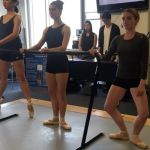 What is Dance Kinesiology? Understanding the Science of Movement
What is Dance Kinesiology? Understanding the Science of Movement What is Samba No Pé? Brazilian Carnival Solo Dance | Creative Edge Dance Studio
What is Samba No Pé? Brazilian Carnival Solo Dance | Creative Edge Dance Studio How Much Do Dance Classes Typically Cost in the US? | Pricing Guide for 2025
How Much Do Dance Classes Typically Cost in the US? | Pricing Guide for 2025